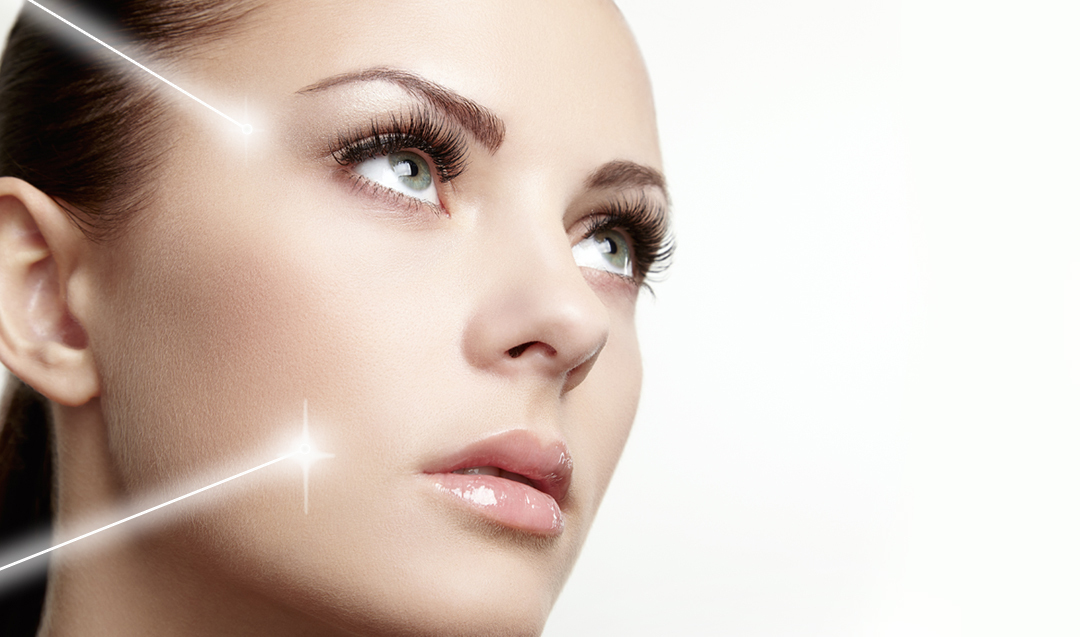Before delving into the side effects, let's briefly recap how laser acne treatment works. Laser therapy utilizes concentrated beams of light to target and address the underlying causes of acne, including bacteria, inflammation, and excess sebum production. By penetrating deeper layers of the skin, lasers can effectively reduce acne lesions, minimize redness and swelling, and promote skin rejuvenation.

Potential Side Effects:
While laser acne treatment is generally safe and well-tolerated, some patients may experience mild side effects following the procedure. These side effects are typically temporary and resolve on their own within a few hours to days. However, it's essential to be aware of them and communicate any concerns with your dermatologist. Here are some common side effects associated with laser acne treatment in Dubai:
1. Redness:
One of the most common side effects of laser acne treatment is temporary redness or erythema of the treated skin. This redness may appear immediately after the procedure and can persist for a few hours to days, depending on the individual's skin sensitivity and the type of laser used. In most cases, the redness resolves on its own without the need for intervention.
2. Swelling:
Some patients may experience mild swelling or edema in the treated area following laser acne treatment. This swelling is usually temporary and may be more pronounced in individuals with sensitive or reactive skin. Applying cold compresses or ice packs to the affected area can help alleviate swelling and discomfort.
3. Dryness or Peeling:
Laser therapy can temporarily disrupt the skin's barrier function, leading to dryness or peeling in the treated area. This side effect is more common with ablative lasers, which remove the outer layers of the skin to promote regeneration. Patients may experience mild flaking or peeling of the skin, similar to a sunburn, as it heals. Moisturizing the skin with gentle, non-comedogenic moisturizers can help alleviate dryness and promote healing.
4. Sensitivity to Sunlight:
Following laser Acne treatment, the treated skin may be more sensitive to sunlight than usual. Exposure to ultraviolet (UV) radiation can exacerbate side effects such as redness and increase the risk of post-inflammatory hyperpigmentation. Patients are advised to avoid sun exposure and wear broad-spectrum sunscreen with a high sun protection factor (SPF) to protect the skin from UV damage.
5. Temporary Discomfort:
Some patients may experience mild discomfort or a sensation of warmth during the laser acne treatment procedure. This sensation is typically transient and subsides once the treatment is complete. However, individuals with low pain tolerance or heightened sensitivity may require topical numbing cream or cooling devices to minimize discomfort during the procedure.
6. Changes in Pigmentation:
In rare cases, laser acne treatment may cause changes in skin pigmentation, particularly in individuals with darker skin tones. Hyperpigmentation (darkening of the skin) or hypopigmentation (lightening of the skin) may occur as a result of excessive heat or trauma to the skin during the laser procedure. Dermatologists take precautions to minimize the risk of pigmentary changes by using appropriate laser settings and techniques tailored to the patient's skin type.
Managing Side Effects:
While the side effects of laser acne treatment in Dubai are generally mild and temporary, there are several strategies to manage them effectively:
Follow Post-Treatment Care Instructions: Adhering to post-treatment care instructions provided by your dermatologist is essential for minimizing side effects and promoting optimal healing. This may include applying soothing creams or ointments, avoiding sun exposure, and following a gentle skincare regimen.
Stay Hydrated: Drinking plenty of water can help hydrate the skin from within and promote healing. Moisturizing the skin with gentle, non-comedogenic moisturizers can also alleviate dryness and peeling associated with laser treatment.
Protect the Skin from Sun Exposure: Sunscreen is essential for protecting the skin from UV damage and minimizing the risk of post-inflammatory hyperpigmentation. Patients should apply sunscreen with a high SPF and reapply it frequently, especially when spending time outdoors.
Avoid Harsh Skincare Products: While the skin is healing from laser treatment, it's essential to avoid harsh skincare products that may further irritate or sensitize the skin. Opt for gentle, non-abrasive cleansers and avoid exfoliating or abrasive treatments until the skin has fully recovered.
Communicate with Your Dermatologist: If you experience any persistent or concerning side effects following laser acne treatment, don't hesitate to contact your dermatologist. Your dermatologist can provide personalized advice and recommend appropriate interventions to address your concerns effectively.
Conclusion!
In conclusion, laser acne treatment in Dubai offers an effective and innovative solution for individuals seeking relief from stubborn acne breakouts and blemishes. While the procedure is generally safe and well-tolerated, it's essential to be aware of potential side effects and take appropriate precautions to minimize them. By understanding the nature of side effects, following post-treatment care instructions, and communicating with your dermatologist, you can navigate the laser acne treatment journey with confidence, knowing that you're on the path to clearer, healthier skin.
For more information: How Long Does Laser Acne Treatment in Dubai Take?
